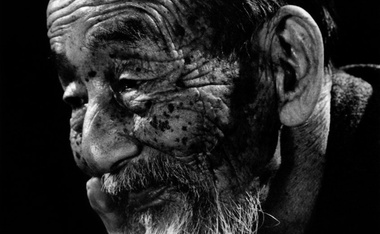The Baha’i Faith, a religion deeply rooted in the principles of unity and the oneness of humanity, has a rich tapestry woven with the stories of its early adopters. Among these pioneering souls, two remarkable figures stand out: Yamamoto and Fujita, the first Japanese Baha’is. Their journeys, interlaced with cultural heritage and spiritual enlightenment, serve as a compelling metaphor for the broader Bahá’í principle that the light of truth transcends linguistic and geographical boundaries. This article delves into the lives and legacies of these extraordinary individuals, exploring their unique contributions to the Baha’i Faith and the implications of their spiritual journey for Japan and the world.
Yamamoto and Fujita emerged amidst a transformative epoch in Japanese history, marked by the Meiji Restoration and subsequent modernization. As the nation opened its doors to the West, a burgeoning interest in international ideologies emerged. Against this backdrop, the Baha’i teachings offered a refreshing paradigm—a new lens through which to view humanity’s interconnectedness. This potent blend of Eastern wisdom and Western thought appealed to the ideals advocated by both Yamamoto and Fujita, instilling in them a profound sense of purpose.
For Yamamoto, the allure of the Baha’i Faith lay in its commitment to universal peace and justice. Embracing the teachings of Baha’u’llah, he became an ardent advocate for social reform, promoting the necessity of education and equality. His pursuits were not merely personal; they mirrored a broader societal longing for transformation. Yamamoto’s engagement with these principles can be likened to an artisan skillfully carving a piece of wood—each stroke revealing the inherent beauty of both the material and the artistic vision entwined within it. By integrating the essence of the Baha’i Faith into his life, he illuminated paths where darkness had reigned.
Conversely, Fujita’s compelling narrative was one steeped in the philosophy of spiritual evolution. An astute thinker, his reflections on the Baha’i teachings spearheaded critical dialogues within Japanese society regarding individual spiritual development and collective responsibility. His belief that personal transformation is the cornerstone of societal progress resonated profoundly in a culture endeavoring to reconcile traditional values with modern aspirations. The metaphor of a river that bends yet flows steadily can aptly represent Fujita’s vision—as he championed the idea that while societal currents may change, the underlying goal of unity and development remains unwavering.
Together, Yamamoto and Fujita not only embraced the Baha’i Faith as individuals but also catalyzed its introduction to Japan. Their efforts to disseminate the teachings became an invitation to a collective awakening. They organized gatherings that nurtured dialogue among disparate communities, fostering an environment where ideas could flourish. This burgeoning community served as a microcosm of the Baha’i aspiration for global unity—a living embodiment of principles that advocate for diversity while championing collective harmony. Through their commitment, they planted seeds of change which would grow over the following decades, significantly shaping the contours of the Baha’i narrative within Japan.
The legacy of Yamamoto and Fujita transcends their individual contributions, echoing the enduring themes of resilience and adaptability. In an era of rapid change, their stories resonate as testimonies to the power of faith in catalyzing human progress. The dynamic interplay between their cultural identities and Baha’i beliefs highlights a profound truth: religious tenets can bridge diverse cultural landscapes, serving as a unifying force in a fragmented world. This notion aligns seamlessly with the Bahá’í ethos that values both individuality and collective identity, fostering a tapestry enriched by varied threads yet unified in its purpose.
In reflecting upon their journeys, one can discern that the first Baha’is in Japan illuminated pathways not only for themselves but for countless others. They embodied an essential principle of the Baha’i Faith: the pursuit of truth is a collaborative endeavor, a symbiotic relationship wherein learning from one another fosters collective enlightenment. Their experiences serve as an entreaty for contemporary followers to reconceptualize engagement with their communities—not merely as disseminators of knowledge but as co-creators of a unified vision for the future.
Moreover, Yamamoto and Fujita’s legacies invite a reevaluation of identity within the Baha’i framework. They exemplified how cultural nuances and spiritual convictions intertwined, yielding a unique synthesis that both honors tradition and embraces innovation. The interplay of these elements prompts a broader discourse on the role of cultural identity in spiritual practice—a discourse essential in an increasingly globalized society where the intersectionality of belief systems is ever more pronounced. Their experiences challenge us to reflect: how do we harmonize our distinct cultural narratives with the universal truths heralded by the Baha’i teachings?
In conclusion, the story of Yamamoto and Fujita, the first Japanese Baha’is, is not merely a historical account of two individuals but a rich narrative that speaks to the very essence of the Baha’i Faith. Their lives illustrate the profound capacity of spiritual principles to transcend barriers, inspiring individuals and communities alike. As we step forward into a future replete with challenges and opportunities, their unwavering commitment to the values of unity, peace, and justice serves as a beacon—a reminder that the journey towards a more inclusive, harmonious world begins within each of us.
